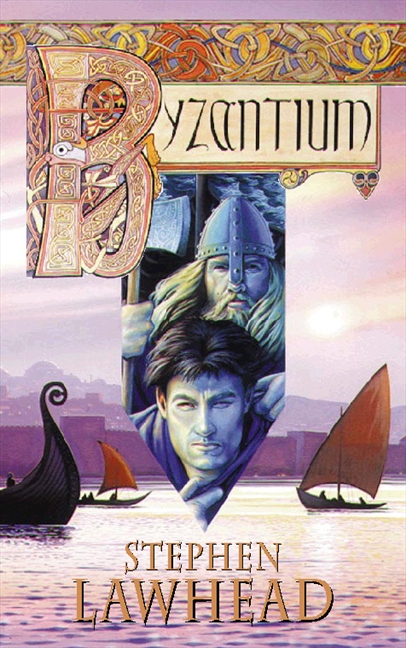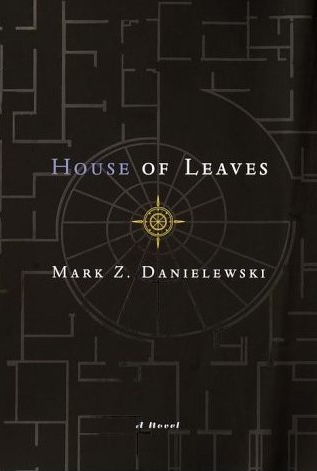 Byzantium was my favourite book in the world for a while. It’s a dense and well-researched epic about 10th century monk Aidan, and his journey to deliver the Book of Kells to the emperor of Constantinople. Every other historical thriller seems fake next to it. I don’t like slash and hack Conan the Barbarian stories starring historical people (Conn Iggulden, etc.). Byzantium feels more authentic and real. Not that I’d know whether it actually is, of course, but if it’s a deception then it was good enough to fool me, and maybe it will be good enough to fool you.
Byzantium was my favourite book in the world for a while. It’s a dense and well-researched epic about 10th century monk Aidan, and his journey to deliver the Book of Kells to the emperor of Constantinople. Every other historical thriller seems fake next to it. I don’t like slash and hack Conan the Barbarian stories starring historical people (Conn Iggulden, etc.). Byzantium feels more authentic and real. Not that I’d know whether it actually is, of course, but if it’s a deception then it was good enough to fool me, and maybe it will be good enough to fool you.
Byzantium has a putative main character, but a lot of the focus is spent on the setting and world, with the characters sometimes only wending a barely noticeable passage through it. Several worlds, in this case. Aidan journey takes him from Scandinavia to the Bosphorus to the Middle-East, to rags to riches to ruin.
Aidan is unworldly, but he has courage and faith. Plenty of the latter, in fact. Byzantium is the tale of a man facing the perils of the world with a cross around his neck. In a sense, the main character isn’t Aidan but Aidan’s faith. His candle against the dark.
Main characters don’t always survive.
Byzantium is gripping from beginning to end, but the real paydirt is its scenes of spiritual desolation and internal misery. As disaster piles on disaster, Aidan feels a wrenching abandonment from his god and savior. Few books manage to describe a crisis of faith this well. Aidan’s ideals are no match for the reality of the world he lives in, and eventually all he has is a doxastic cynicism. Wolves sometimes hide in the sacristy. Every hope can be a false one, even the hope of death. And when man makes a plan, God laughs.
I should advise that this is a slow book. There’s lots of GRRM-esque scenes of courtly intrigue, and lots of scenes with the purpose of elaborating small details in the, well, Byzantine plot. Some of them might bore at first, but if you re-read the book, these quieter scenes are the ones you’ll find most fascinating. There are a couple of rousing battles, but Lawhead comes from the “less is more” school. If you want characters who fight bandits every couple of pages like a D&D game, Conn Iggulden and David Gemmell might be more for you.
Byzantium is great, but it falls short of perfect. Fourteen years later, I notice Persian flaws that I didn’t see before. Lawhead gives Aidan a love interest, realises he has nothing for her to do, and writes her out of the story. The pacing is uneven: with the big final showdown having Lawhead racing around like a shop clerk five minutes before closing time.
Nevertheless, Byzantium is truly special. Lawhead has revisited this basic story a couple of times (Patrick, The Iron Lance), but the first blade from the mould cuts the deepest. Definitely the first thing to check out by this author, although The Song of Albion isn’t far behind.

Some books suck ass and are completely worthless. This book is even worse. Parts of it are good.
Garbage is something I can deal with. Garbage mixed into fine cordon bleu is another. Cows has a good idea, and it’s written well. Unfortunately, it’s charley-horsed at every step by its own identity: it’s a transgressive fiction book full of extreme gore and sex. This book doesn’t need extreme gore and sex. It would have been better off without it.
It entails a young man (with a dysfunctional home life) who gets a job slaughtering cows at an abattoir, and how that job begins to warp his mind. His meathook-inspired self-actualization is simple. At home, he’s a downtrodden worm. At work, he has the power of a Biblical god over an endless procession of animals. But he’s the same man he was at home, so why doesn’t he bring Muhammad to the mountains, as it were?
Cows is never more powerful and unsettling than in quiet scenes of the main character watching TV, dreaming of a better life. Cows is never so cartoonish and boring in its scenes of the protagonist shitting into his mother’s mouth and raping cow carcasses. The shock value soon stops being shocking, like a ten gallon drum of sugar will soon stop tasting sweet. Cows soon sickens into something annoying and even a bit comedic, like a Paul Jennings book for the William S Burroughs crowd.
Starting halfway through, Cows starts going off into various surrealistic directions, which damages the plot integrity still more. Cows works fine when it plays things straight. Talking animals, however, queer the pitch.
Cows illustrates an interesting fact about transgressive fiction: it is hard to get right. For a book of this kind to succeed, it needs something extra…whether that something is a sharp poetic edge (Aldapuerta’s The Eyes, Havoc’s White Skull, or Guyotat’s Eden Eden Eden), an umbilicus to reality that denies the reader the safe distance of fantasy (Peter Sotos’s books), or satire and social commentary of some sort (American Psycho, some Palahniuk things I suppose).
I think Stokoe was going the satire route (parts of the book read a little like Fight Club), but the outrageous OTTness is the least successful thing about it, and tends to spoil the more subtle and textured parts of the book. The result is something like a dark Chopin movement drowned out by random blasts of white noise. There’s moments of genuine depth juxtaposed by ridiculous scenes where not just a single bull is crashing through a china shop but a whole herd of them.
Cows never delivers on its potential…but it never disavows its potential, either. Parts of the book are effective. The character’s sense of alienation is real. Cows could have been great if Stokoe had been satisfied with something milder, but he piles on tired “transgressive” stuff as if he has a quota to meet, and the result is a corresponding disappointment. It’s a shame to see a book ignoring its own strengths.
 Last year I read something online called “Ted’s Caving Page”. It was a short story about a spelunker exploring a cave, and I found it very, very frightening. Partly because of the story, but also because of how it was presented. It was long, unedited, and written in an rambly hands-in-overall-pockets style that took me off-guard. It was (deliberately?) amateurish, but that made it seem real.
Last year I read something online called “Ted’s Caving Page”. It was a short story about a spelunker exploring a cave, and I found it very, very frightening. Partly because of the story, but also because of how it was presented. It was long, unedited, and written in an rambly hands-in-overall-pockets style that took me off-guard. It was (deliberately?) amateurish, but that made it seem real.
If Ted’s Caving Page had come in a shiny new paperback with “CRITICALLY ACCLAIMED” on the front cover and “‘THE GREATEST SCARY STORY IN 10 YEARS … WOW’ – Ramsey Campbell” on the back…I wouldn’t have enjoyed it as much, or so I suspect. It would have seemed crude, primitive, unworthy of its heraldry. And yet, hosted on a cheap Angelfire site, the story worked. It was a success not because of what it was but because of how it was. It’s popular to pretend that art is self-contained and is not affected by anything outside itself. In truth, art can be enhanced or destroyed by nothing more than its packaging.
House of Leaves by Mark Danielewski compares to Ted’s Caving Page in a number of ways, but foremost is that the presentation is an enmeshed part of the story. It is a story-in-a-story about a man who, apartment-hunting, finds an abandoned manuscript about a very odd house. The house is the real story, but it’s one we’re told in between periods of commentary from our narrator. He talks about his love life, and his mother, and the darkness that seems to be gathering about him with each waking moment.
The manuscript is about a man called Navidson, who owns a peculiar house. Its walls, measured from inside, have a greater perimeter than when measured from outside. Rooms appear and disappear. Soon, a vast chamber appears, and Navidson begins to explore and document it using an Arriflex camera. At the beginning, the house seems like a metaphor for Navidson’s madness, but soon others are capture. If the house is nothing but a noumena of Navidson, then he is a danger to everyone around him, most of all his wife and children.
The narrator is unreliable. The book is unreliable. Some pages have only a single word. Some of them must be read by holding the book up to a mirror. There are scholarly references to various real and fictional articles, and there are fake (but very convincing) interviews with folk such as Stephen King and Anne Rice about the nature of the document. Sometimes what you’re reading doesn’t make sense, but it works as window dressing, creating the impression that you are reading things that actually happened. Little details, like the main character’s, relationship with his mother seem simultaneously irrelevant and hugely important.
Although the story is as gripping as anything I’ve read, critical pieces of information are ambiguous or missing, even at the end. This is not a book of answers, but a book of questions. You have to work for House of Leaves‘ very occasional revelations, which makes them seem all the more worthwhile. The cryptic, byzantine nature of the book invites the reader’s exploration…rather like a certain house.
This book creates a unique and special atmosphere. It’s as structured and planned as any novel ever written, and it does seem artificial in some ways, but that makes me think of The Blair Witch Project. The first five minutes, all you can notice is the shaky camera. By the end of the movie, you’ve forgotten that things like cameras even exist.
 Byzantium was my favourite book in the world for a while. It’s a dense and well-researched epic about 10th century monk Aidan, and his journey to deliver the Book of Kells to the emperor of Constantinople. Every other historical thriller seems fake next to it. I don’t like slash and hack Conan the Barbarian stories starring historical people (Conn Iggulden, etc.). Byzantium feels more authentic and real. Not that I’d know whether it actually is, of course, but if it’s a deception then it was good enough to fool me, and maybe it will be good enough to fool you.
Byzantium was my favourite book in the world for a while. It’s a dense and well-researched epic about 10th century monk Aidan, and his journey to deliver the Book of Kells to the emperor of Constantinople. Every other historical thriller seems fake next to it. I don’t like slash and hack Conan the Barbarian stories starring historical people (Conn Iggulden, etc.). Byzantium feels more authentic and real. Not that I’d know whether it actually is, of course, but if it’s a deception then it was good enough to fool me, and maybe it will be good enough to fool you.

